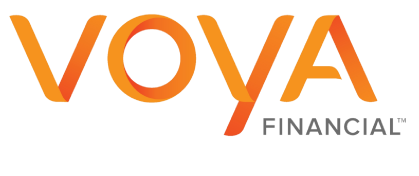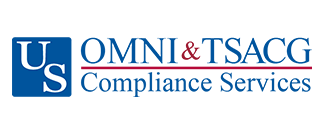Division of Risk Management and Insurance Services
Page Navigation
- Los Angeles Unified School District
- Benefits Administration
-
LAUSD is the recipient of the prestigious 2024 NAGDCA (National Association of Government Defined Contribution Administrators) – Art Caple President’s Award. The President’s Award is presented annually at the NAGDCA Annual Conference to a public-sector retirement plan that has championed the participant-first mentality that the original founder, Art Caple, demonstrated in his work building financial security for public employees. LAUSD is honored to be recognized for its dedication to enhancing the financial well-being of plan participants.
- Click Here: Upcoming Federal Changes - Section 603 of Secure Act 2.0
-
Starting in January 2026, under Section 603 of Secure Act 2.0, all catch-up contributions must be made as Roth (post-tax) contributions.
Who will be impacted?
If all the following apply to you:
- Are age 50 or older,
- Earn $145,000 or more in Social Security wages in 2025, and
- Plan to make catch-up contributions.
What do you need to do?
You will need to decide how to address your age catch-up contributions. Below are some options:
- Already using a Roth option for your catch-up contributions? Great! No action needed – you’re already in compliance.
- Currently using a traditional option for catch-up? You’ll need to open a Roth 403(b) and/or 457(b) account and redirect your catch-up contributions as post-tax.
- Prefer to stay with the traditional option? You can contribute the basic contribution ($23,500 in 2025) to both a 403(b) and 457(b) plan — for a combined total of $47,000 — but catch-up contributions must be made using a Roth option.
- What happens if you don’t do anything? Once your traditional pre-tax contributions reach the basic contribution limit ($23,500 in 2025), your contributions will pause automatically for the rest of the year and resume the following January.
For personalized guidance, please consult with a qualified financial or tax advisor. The District cannot provide financial advice. For additional assistance, please contact Voya and/or TSACG.
-
The District offers employees deferred compensation plans. These are voluntary retirement savings plans to help supplement retirement income.
The District offers both traditional and Roth options for 457(b) and 403(b) retirement savings plans. Both traditional 457(b) and 403(b) plans allow for the investment of pre-tax earnings which may decrease your taxable income. Roth 457(b) and 403(b) contributions are made with post-tax earnings with the benefit that you may be able to withdraw from your account tax-free when you retire. Contributions to any of these four plans are made through automatic payroll deductions.
 Eligibility
EligibilityAll employees (with the exception of student workers) are eligible to enroll in any deferred compensation plan. The maximum allowable contribution, as set by the Internal Revenue Service (IRS), is as follows:
- Individuals under age 50: up to $23,500 per plan for 2025.*
- Individuals age 50 or older: an additional amount up to $7,500.
* The combined contribution amounts for traditional and Roth plans cannot exceed the maximum allowable contribution, which is subject to change yearly based on IRS regulations.
Contributions may begin at any time. It may take one or two payroll cycles before the first deduction, or any change, is reflected.
-
Contact InformationVoya: (844) 525-2873TSACG: (888) 796-3786
-
Comparison Overview
-
¹ Subject to the Internal Revenue Service (IRS) rules and regulations regarding qualified distributions. A qualified distribution of the Roth 403(b)/457(b) resulting in tax-free distribution earnings requires that the distribution is made after a 5-taxable-year period of Roth participation and is either:
- made on or after the date you attain age 59½,
- made after your death, or
- attainable to your being disabled as defined by the IRS as separation from active service because the person cannot engage in any substantial gainful activity because of a physical or mental condition. A physician determines that the disability has lasted or can be expected to last continuously for at least a year or can lead to death.
The 5-year account holding period and the attainment of age 59½ are the key factors that result in a tax-free distribution. If the distribution circumstance does not meet both of these requirements, the "earnings" portion of the distribution is subject to ordinary income taxation. The "after tax" contributions are never taxed again. Roth and pre-tax 457(b) accounts are exempt from the 10% additional excise tax if withdrawn prior to age 59½.
² For purposes of the 457(b) plan, an unforeseeable emergency is defined by the IRS as a severe financial hardship of the participant or the participant's dependent resulting from an extraordinary or unforeseeable circumstance beyond the control of the participant or the participant's dependent.
-
Account Enrollment
- 457(b)
-
Enrollment
Voya Financial® is the plan administrator for the District's sponsored 457(b) deferred compensation plans.

To enroll in either traditional 457(b) or Roth 457(b), please click here. To enroll via paper application, a copy of the enrollment form is available in the deferred compensation plans section of the Forms/Publications page.
Managing your accountThe Voya Financial® site allows participants to make various transactions, such as:
· Setup/change contribution amount
· Manage investment options
· Transfers and rollovers
· Withdrawals, surrenders, and hardship distributions
· Loans
To request any of these transactions, login to Voya Financial®. - 403(b)
-
Enrollment
TSACG is the plan administrator for the District's sponsored 403(b) deferred compensation plan.
To enroll into either the traditional 403(b) or the Roth 403(b):
1. Visit TSACG to view the District's Investment Provider List. Compare and choose a provider.
2. Open an account with any of these providers by completing the provider's application. Applications are available only from the Investment Providers.
3. Once you have established an account with your chosen Investment Provider, you will need to create an account with TSACG's login/account setup page to get your contributions started.Managing your accountThe TSACG site allows participants to make various transactions, such as:
· Setup/change contribution amount
· Transfers
· Withdrawals, surrenders, and hardship distributions
· Loans
To request any of these transactions, login to TSACG.
-
Other Important Information
-
TIAA Traditional Account Holder Information -
For members who have a TIAA Traditional Account and would like more information, please visit TIAA or call 800-842-2252. Please note: your TIAA Traditional Account does not allow you to contribute money, take loans, or take emergency withdrawals. Assets from your TIAA Traditional Account may be transferred to Voya Financial® by completing the "TIAA Request for a Direct Transfer" form and submitting it to TIAA.
-
Retirement Investment Advisory Committee -
The Retirement Investment Advisory Committee (RIAC) oversees the administration and implementation of the 403(b) and 457(b) plans as well as the Public Agency Retirement System (PARS). Its main responsibility is to advise the District’s Chief Business Officer.
The RIAC is comprised of representatives of the various labor unions, an appointee for the District’s Board of Education, an appointee for the District’s Chief Business Officer, staff from the District’s Benefits Administration, members at large, the 403(b) and 457(b) third-party administrators, TSACG and Voya Financial®, as well as staff from NFP Retirement and PARS.RIAC Meeting Minutes 2017
RIAC Meeting Minutes 2016
RIAC Meeting Minutes 2015
RIAC Meeting Minutes 2014
RIAC Meeting Minutes 2013
RIAC Meeting Minutes 2012
RIAC Meeting Minutes 2011
RIAC Meeting Minutes 2010 -
Information for Retirees -
For information regarding distribution, loans, and/or hardship withdrawal, contact:
457(b): Voya Financial® (844) 525-2873
403(b): TSACG (888) 796-3786




